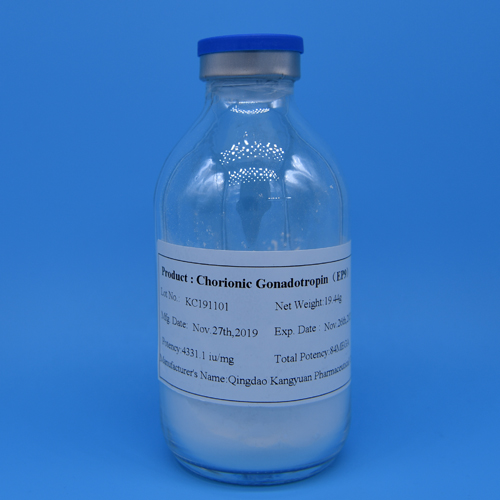In the realm of medicine, HCG (Human Chorionic Gonadotropin) and urokinase
have emerged as crucial components in the treatment of diverse conditions. This
article highlights the significance and roles of HCG and urokinase, shedding
light on their distinctive features and therapeutic benefits.
Understanding HCG and Urokinase:
HCG: HCG is a hormone primarily associated with pregnancy. However, it has
also found utility in the medical field, most notably in fertility treatments
and hormone-related disorders.
Urokinase: Urokinase is an enzyme that plays a vital role in dissolving
blood clots and improving blood flow. It is commonly used in the treatment of
thrombotic disorders and within the field of interventional cardiology.

Applications in Fertility Treatment:
HCG is a valuable component in assisted reproductive technologies such as
in vitro fertilization (IVF) and intrauterine insemination (IUI). It stimulates
final egg maturation and triggers ovulation, facilitating the collection of
mature eggs for fertilization.
Urokinase does not have a specific role in fertility treatment; however,
its application in other medical conditions can indirectly impact fertility in
cases where clotting disorders contribute to infertility.
Managing Thrombotic Disorders:
Urokinase is a potent thrombolytic agent used in the treatment of various
thrombotic disorders, including pulmonary embolism, deep vein thrombosis (DVT),
and arterial occlusion. It breaks down clots and restores blood flow, reducing
the risk of complications.
HCG, on the other hand, does not have a direct role in managing thrombotic
disorders but may be involved in cases where hormone-related conditions
contribute to clot formation.
Clinical Applications in Cardiology:
Urokinase is utilized in catheter-directed thrombolysis for acute coronary
syndromes, where it is administered directly into the blocked coronary artery to
dissolve the clot and restore blood flow.
HCG does not have a specific application in cardiology, as its primary
focus lies in fertility treatment and hormone-related disorders.
Safety and Side Effects:
Both HCG and urokinase are generally considered safe when administered
under the supervision of a healthcare professional. However, they may carry a
risk of side effects such as allergic reactions, bleeding, or hormonal
imbalances in some cases.
Patients should always consult with their healthcare providers to ensure
the appropriate usage of these medications and to address any concerns or
potential risks.
HCG and urokinase have emerged as essential components in various medical
treatments, catering to distinct therapeutic needs. HCG plays a significant role
in fertility treatments, whereas urokinase's primary focus lies in dissolving
clots and improving blood flow in thrombotic disorders. Through ongoing
advancements and research, these medications continue to contribute to
advancements in medical solutions, providing hope and improved outcomes for
patients across different medical conditions.